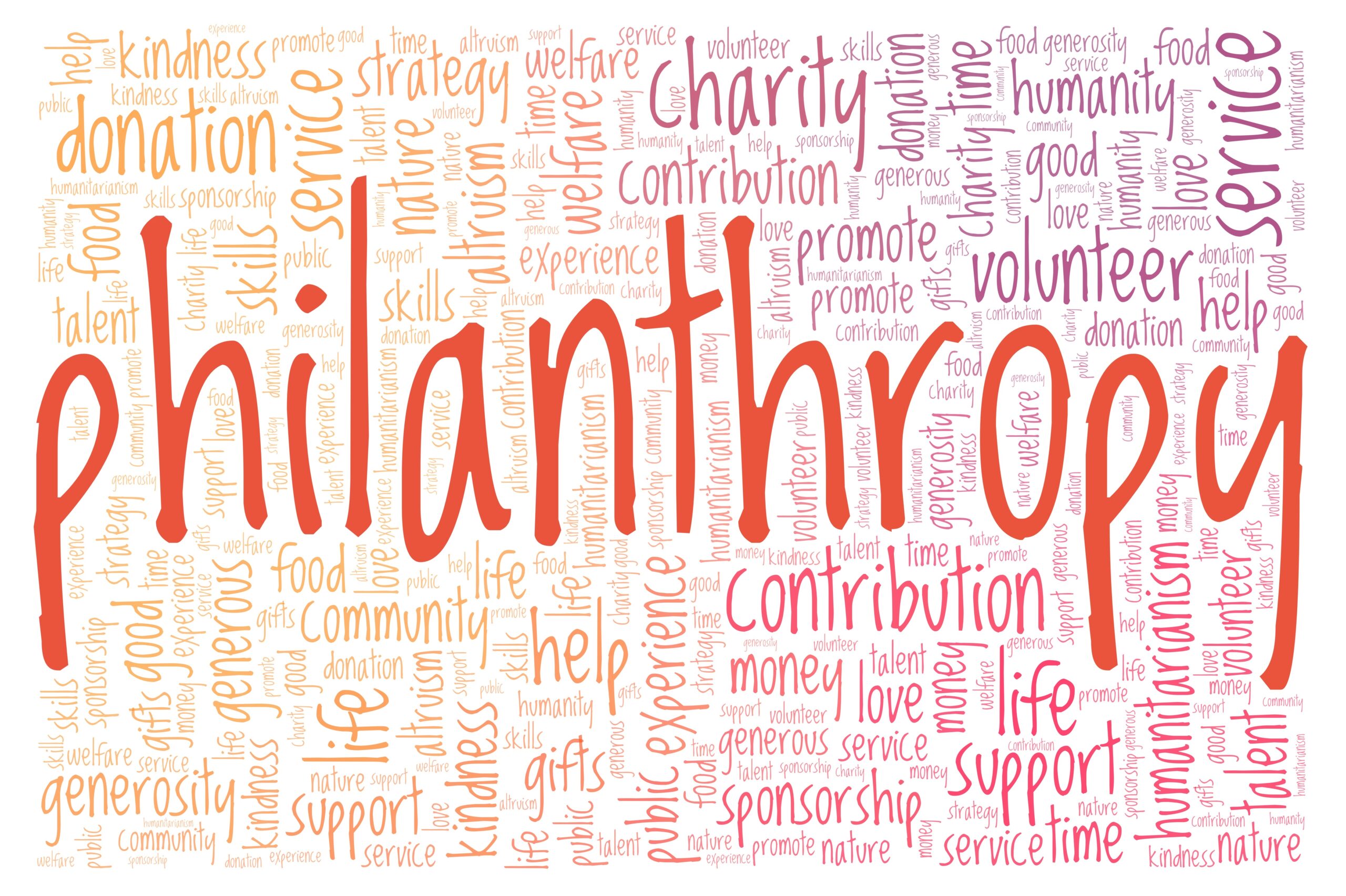[button link=”https://monetastl.com/cwcj/cwcj-insider/#signup” type=”big” color=”black”] Sign-up to receive these pieces in your inbox[/button]
Manager of Marketing & Business Intelligence – Megan Merriss
Gift-giving has been an enduring aspect of human culture for centuries. Whether it’s a birthday, a holiday, or a spontaneous act of kindness, the act of giving carries emotional significance for both the giver and the recipient.
As the holiday season approaches, the spirit of giving takes center stage, bringing with it the exchange of gifts, acts of kindness, and a sense of generosity. It’s during this season that we delve into the psychology of gifting and the profound impact of philanthropy on individuals in this blog.
The Joy of Giving
The act of giving, whether a material gift, an act of service, or a donation to a charitable cause, triggers a release of “feel-good” chemicals in our brains. Research shows that when we engage in altruistic behaviors, our brains release dopamine, the neurotransmitter associated with pleasure and reward. This “helper’s high” not only elevates our mood but also contributes to a sense of fulfillment and well-being.
Additionally, gift-giving fosters a sense of connection with others. It strengthens social bonds, as it is a way to express love, gratitude, or appreciation. When you give a thoughtful gift, you communicate to the recipient that you understand their needs or desires, deepening the emotional connection between you and them.
The Psychological Impact of Philanthropy
Philanthropy, the act of giving to charitable causes or helping those in need, extends the concept of gift-giving on a larger scale. Engaging in philanthropic activities, such as donating to a charity or volunteering your time, can have profound psychological effects on the giver.
- Sense of Purpose: Philanthropy can provide a sense of purpose and meaning in life. When we contribute to causes that align with our values and beliefs, we feel a greater sense of fulfillment and significance. We become a part of something greater than ourselves.
- Enhanced Well-Being: Multiple studies have shown that individuals who engage in philanthropic activities report higher life satisfaction and overall well-being. The act of helping others, even in small ways, can lead to increased happiness.
- Reduced Stress: Engaging in philanthropy can reduce stress and anxiety. When you focus on the needs of others, it shifts your attention away from your own worries, providing relief from stressors. Not to mention, the increase in dopamine in your brain can help to decrease the effects of stress on your mind and body.
- Improved Self-Esteem: Philanthropy can boost self-esteem and self-worth. The knowledge that you’ve made a positive impact on the lives of others can lead to a greater sense of self-value. Knowing that you are capable of making a difference in the world and being recognized for your contributions can be a powerful self-esteem booster.
- Personal Growth and Development: Philanthropy often involves stepping out of your comfort zone, whether through volunteer work, public speaking, or fundraising efforts. These experiences can lead to personal growth and development as you acquire new skills and overcome challenges. As you grow, your self-esteem can rise as you recognize your capacity for adaptation and growth.
The Paradox of Giving
 The holiday season uniquely highlights the paradox of giving, where the anticipation and planning of gifts can be just as rewarding as the act itself. The excitement of selecting, wrapping, and giving presents can evoke a sense of joy and anticipation that lasts throughout the season. Similarly, the act of giving your time or talents can be equally fulfilling, as the effort and thought put into volunteering or sharing your unique skills with others can create a profound sense of satisfaction and warmth that extends far beyond the holiday season.
The holiday season uniquely highlights the paradox of giving, where the anticipation and planning of gifts can be just as rewarding as the act itself. The excitement of selecting, wrapping, and giving presents can evoke a sense of joy and anticipation that lasts throughout the season. Similarly, the act of giving your time or talents can be equally fulfilling, as the effort and thought put into volunteering or sharing your unique skills with others can create a profound sense of satisfaction and warmth that extends far beyond the holiday season.
This paradox of giving suggests that the act of contemplating a generous act can trigger positive emotions and anticipation, emphasizing the idea that the thought and intention behind the gift can be as meaningful as the gift itself.
The psychology of gifting and the impact of philanthropy on individuals reveal the profound connection between generosity, happiness, and personal fulfillment. On a larger scale, philanthropy enriches our lives by providing a sense of purpose, improving well-being, and reducing stress.
As we prepare to celebrate the holiday season, let us remember the power of giving, both in the form of thoughtful presents and acts of kindness, and the positive change it can bring to our lives and the lives of others. May the spirit of generosity and the joy of giving light up our holiday season, making it a time of happiness and fulfillment for all.
Giving Tuesday is November 28th, 2023. To learn more about this global generosity movement, please click here.
To learn more about how to make the most impact through your philanthropy year round, please reach out to our team at thecompardoteam@monetagroup.com

SIGN-UP TO RECEIVE THESE EDUCATIONAL PIECES STRAIGHT TO YOUR INBOX HERE.
© 2023 Advisory services offered by Moneta Group Investment Advisors, LLC, (“MGIA”) an investment adviser registered with the Securities and Exchange Commission (“SEC”). MGIA is a wholly owned subsidiary of Moneta Group, LLC. Registration as an investment advisor does not imply a certain level of skill or training. The information contained herein is for informational purposes only, is not intended to be comprehensive or exclusive, and is based on materials deemed reliable, but the accuracy of which has not been verified. Trademarks and copyrights of materials referenced herein are the property of their respective owners. Index returns reflect total return, assuming reinvestment of dividends and interest. The returns do not reflect the effect of taxes and/or fees that an investor would incur. Examples contained herein are for illustrative purposes only based on generic assumptions. Given the dynamic nature of the subject matter and the environment in which this communication was written, the information contained herein is subject to change. This is not an offer to sell or buy securities, nor does it represent any specific recommendation. You should consult with an appropriately credentialed professional before making any financial, investment, tax or legal decision. An index is an unmanaged portfolio of specified securities and does not reflect any initial or ongoing expenses nor can it be invested in directly. Past performance is not indicative of future returns. All investments are subject to a risk of loss. Diversification and strategic asset allocation do not assure profit or protect against loss in declining markets. These materials do not take into consideration your personal circumstances, financial or otherwise.



